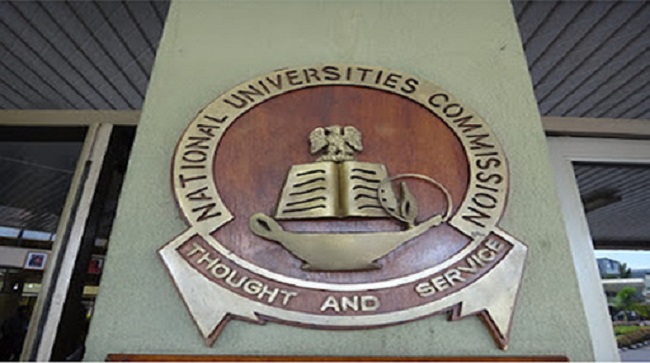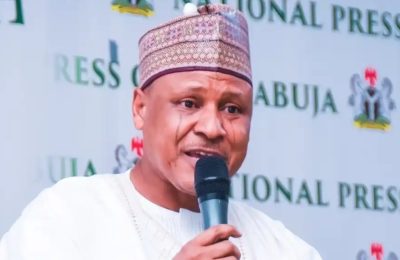

THE Acting Executive Secretary of National Universities Commission (NUC), Mr Chris Maiyaki has reaffirmed the commitment of the commission towards ensuring that universities in Nigeria do not operate below the set minimum standards and global best practices.
Maiyaki stated when he received a delegation of King’s University, London, on a courtesy visit in his office, to explore collaborative opportunities in healthcare development, in Nigeria through education.
He emphasized the importance of institutional and programmes accreditation of universities in the country as one of the key mandate of the Commission, explaining that universities which fall below 70 per cent rating during accreditation risked sanction.

He underscored the Commission’s commitment to upholding global best practices and adapting to emerging trends in education, while facilitating increased access to higher education for millions of students, given the gap that existed between the soaring demand for university education and the capacity of the 272 universities in Nigeria to accommodate the teeming applicants.
He stressed the importance of internal evaluations as a self-correcting mechanism to address deficiencies and uphold quality.
Maiyaki who gave a rundown of the evolution of NUC, outlined the pivotal role of NUC in supervising Nigerian universities since its inception in 1962. He highlighted the Commission’s growth, emphasising its current oversight of 61 Federal universities, 63 state-owned institutions, and 149 private institutions in Nigeria.

Mr Maiyaki stated that NUC was the sole regulatory agency of government, saddled with the responsibility of maintaining educational standards by ensuring the availability of essential resources like learning materials, manpower, and academic support.

He highlighted the challenges within the education sector notably inadequate access, the persistence of illegal degree mills, funding constraints, and the complexities inherent in university administration.
He spoke on the need for strategic partnerships to strengthen efforts of government in the advancement of the higher education landscape in Nigeria, particularly in the face of the perceived challenges.
While speaking on the overarching purpose of education, the Acting NUC boss raised pertinent questions about the efficacy of the educational system in addressing the complex challenges confronting the world, citing the unrest in Russia, Ukraine, Gaza, and even closer home in Niger Republic.
He, thereafter, expressed hopes that the meeting between NUC and the delegation from King’s College London would be a pivotal step towards addressing critical issues within the education sector.
In her remarks, the leader of the delegation and Deputy Vice President, Global Business Development, Professor Helen Bailey, expressed gratitude to the Acting Executive Secretary for the warm reception, while introducing her colleagues on the delegation.
She gave a brief overview of King’s College’s nine faculties, with emphasis on the four health-related faculties, including Life Sciences and Medicine, Dentistry, and the Institute for Psychiatry, Psychology, and Neuroscience. Professor Bailey shared an on-going collaborative endeavour between King’s College London (KCL) and African Medical Centre of Excellence (AMCE).
She disclosed that African Export Import Bank (Afreximbank) had commenced sponsorship plans for trailblazing projects, under the African Medical Centre of Excellence (AMCE) initiative, to develop a 8-floor, 500-bed state-of-the-art hospital in Abuja, Nigeria.
According to her, the effort would offer a full spectrum of medical services in Oncology, Cardiology and Haematology, along with world-class research, education and development capabilities.
The leader of the delegation said that the collaborative project also aimed to establish a medical and nursing school or research centre, to support the production of quality medical personnel in Africa, and to advance technology and innovative strategies.
Read Also: Insecurity: FCT minister, Police commissioner meet senators









